Five African nations are competing in the FIFA World Cup, and it is anticipated that an incredible 86% of the continents’ population in Sub-Sahara alone will be tuning into the matches, a new GeoPoll study says. Sports-mad Kenyans are no exception.
Kenya is home to world-class athletic champions, Safari Rally enthusiasts, and a rising international rugby sevens team. But football is the most popular spectator sport in the country; the English Premier League is followed religiously.
INTERACTIVE: World Cup in numbers
SCHEDULE: Matches and kickoff times
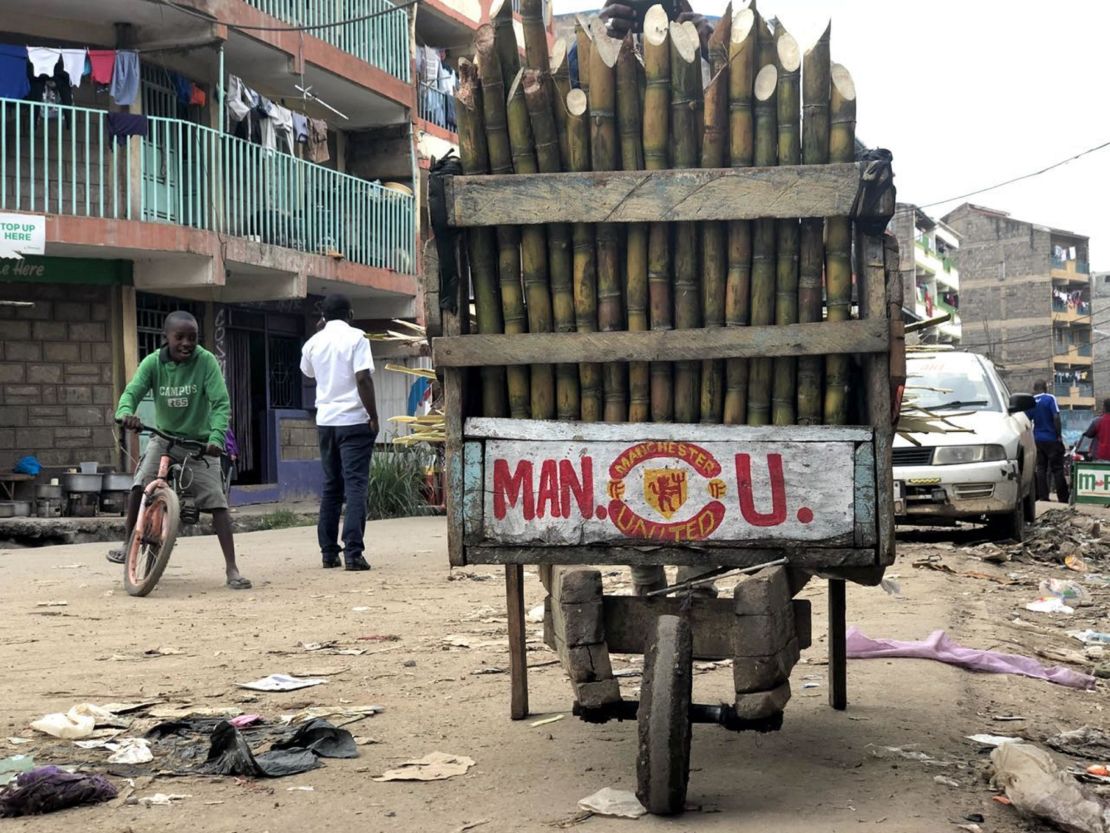
Footballer Nelson Mandela Oballa, says: “Football is life, like part of the daily routine – you wake up, eat, football, then sleep, it goes deep.” He adds that in his neighborhood, “it’s all about football.” Groups here gather around screens in cyber cafés, a furniture shop, in the street, sports bars and video halls to watch a game.
READ: Spain sacks coach after he takes Real Madrid job
READ: US-Mexico-Canada win 2026 World Cup bid
‘Betting has spoiled the game I love so much’
Named after the former South African President, Oballa has been playing football for as long as he can remember.
“We used to go outside and play for like the whole day then my Mom would really get mad,” he says.
“She had this saying ‘You think I’m stupid cooking while you go and play out all day? Fine! When you come back to this house feeling hungry eat that ball, also let the football go to school and read for you, and as for this dirty dishes you are supposed to wash I hope the football washes them for you.’ So my love of football started way back!”

READ: Your Country Needs You! What nationality means to the modern-day footballer
READ: And the winner of the 2018 World Cup will be …
Oballa says that in addition to Kenyans’ love of the game, on the sidelines, betting on matches is a culture that is rapidly gaining root in the country.
“Everyone is betting. I think betting is spoiling the good game. It’s become more of a business to some people,” Oballa said.
“It’s spoiled the game I love so much.”
From headbutts to the 'Hand of God': 11 moments that defined the World Cup
In Sub-Saharan Africa, gambling is highest among Kenyans – where betting is legal over the age of 18.
The proliferation of betting firms in the African nation is giving rise to growing concerns about the addictive nature of gambling, and the lack of any apparent safeguards to prevent underage gambling.
Authorities by their own admission recognize the need to provide a safety net for addicted gamblers falling through the cracks.
A government spokesman, Mwenda Njoka, tells CNN: “It’s only now that Kenyans have woken up to the dangers of gambling.”
Njoka notes that, “the regularity framework for advertising is weak,” and that whilst it is the government’s responsibility to ensure proper warnings about responsible gambling, he says, “we need to do more.”
‘When I bet, I feel good’
Twenty-year-old Richard Ndungu is one of many people for whom football and gambling go hand in hand. At the juice bar he runs in a busy market on the outskirts of Nairobi he tells us “I get like 60 dollars per week, and I spend 35 dollars on betting.”
He bets every day without fail. When we meet up with him a week later, at “Stone Cold” – a local dive bar, he’s betting again, flipping through a newspaper to “Kona Ya Kubeti” (betting corner) on the betting tips page.
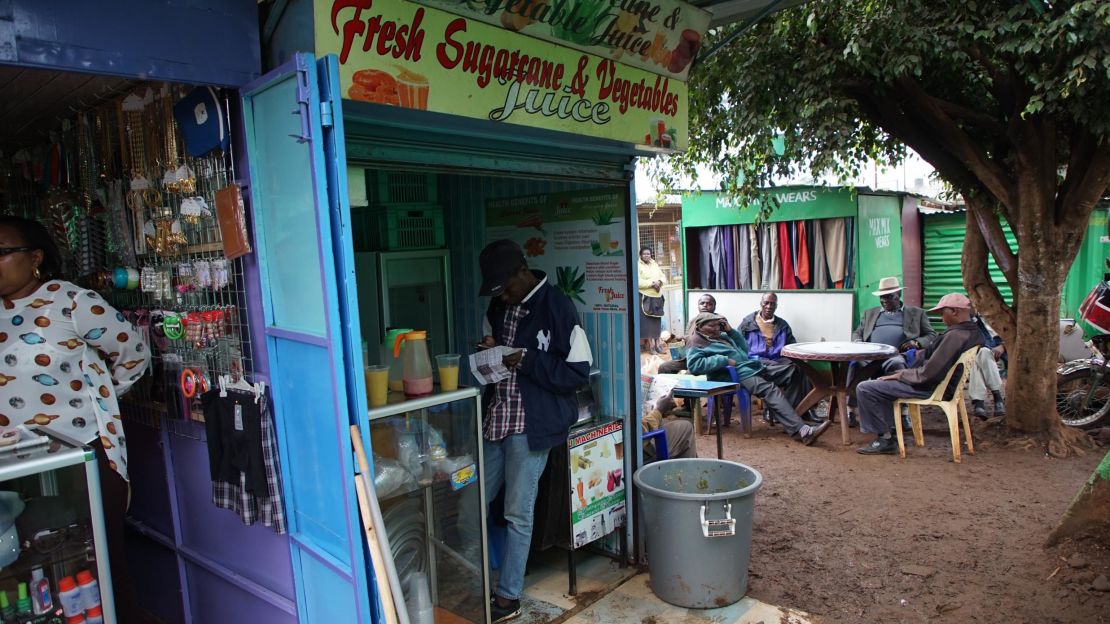
As he watches a game of football, he tells us how he recently placed all his rent money on a bet – “5K” (50 USD).
“I lost. I had to deal with the landlord, I had to tell him like ‘Wait, the next month I’ll pay,’” he said.
“I really want to stop betting but I can’t.”
READ: France’s ‘Rainbow team’ looks back on historic win twenty years on
Ndungu is no exception. Last weekend, with the World Cup only a few days away, queues of punters were already lining up outside a popular sports betting shop in Nairobi to place bets on the friendlies.
We meet up with Kevin Ochieng, who just bet on Brazil to beat Austria. A group of gamblers, some of them his friends, most of them jobless tell us they’re going to bet every day, “It’s for the grind.”
The following day we find Kevin back at the betting shop. He says he won 180 shillings yesterday.
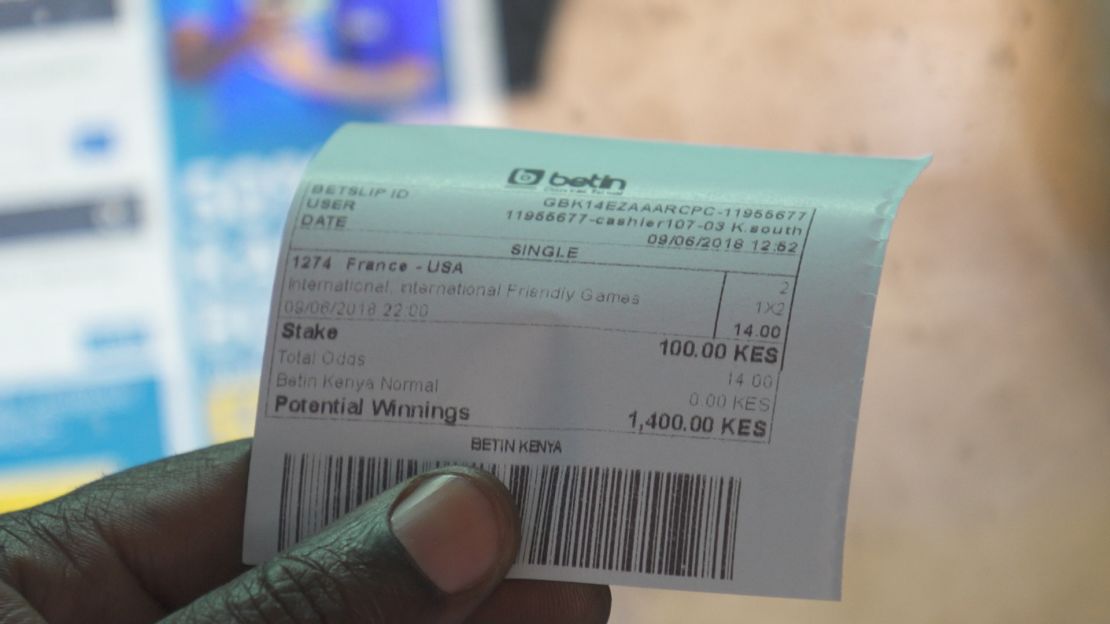
Kevin started betting in February after losing his job. “It was the English Premier League. I won like 20,000 (200 USD) from 100 bob (1 USD) the first time.”
Now, he adds, “it’s where I’m trying to buy daily bread. When I bet, I feel good because I have a lot of hope.”
Kevin has been lucky – “I never lose” – but some people, he says, have to steal to place bets.
“People do gamble with so many reasons. My reason; I have dreams, I don’t have cash.”
Imelda Ominde does have the cash, she’s a professional nurse, who says she’s not really a football fan but she bets regularly and can’t miss a game, “I’m addicted to it. I can’t do without betting.”
She’s lost almost as much as she’s won, but says, “I have the money, little which I can waste a bit in.”
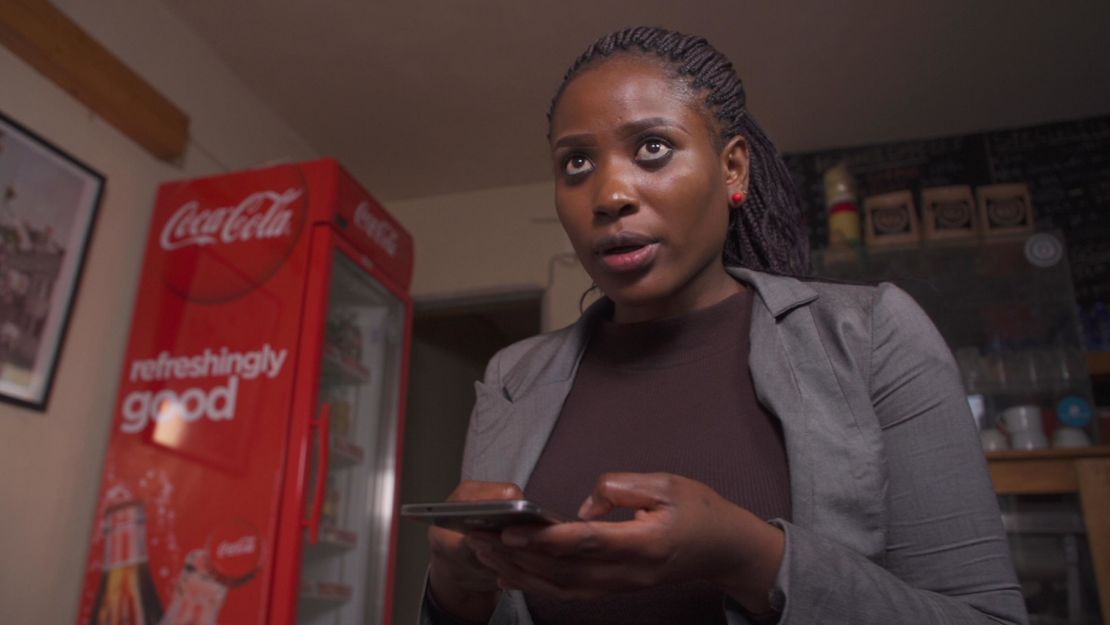
We ask her if the World Cup will be about the game or how much money Kenyans can make – “It will be both.”
The injection of money into the game, for better or for worse, is best illustrated by SportPesa.
It’s Kenya’s most successful online sports betting company (literally meaning SportMoney.) Locally they’re shirt sponsors for all major league football teams, and in the English Premiership for Hull City and Everton, and they have signed agreements to build local and international partnerships in soccer, rugby, boxing, motorsport.
CEO Ronald Karauri says he started the company four years ago, and that by 2016, they were posting profits of 2 Billion shillings, around $20 million.
The swanky SportPesa Nairobi offices are decked with soccer memorabilia – signed English Premier League shirts lining the walls, football-shaped chairs and lighting; and a gigantic mobile phone, symbolizing the enormity of online betting, which is only a few digits away.
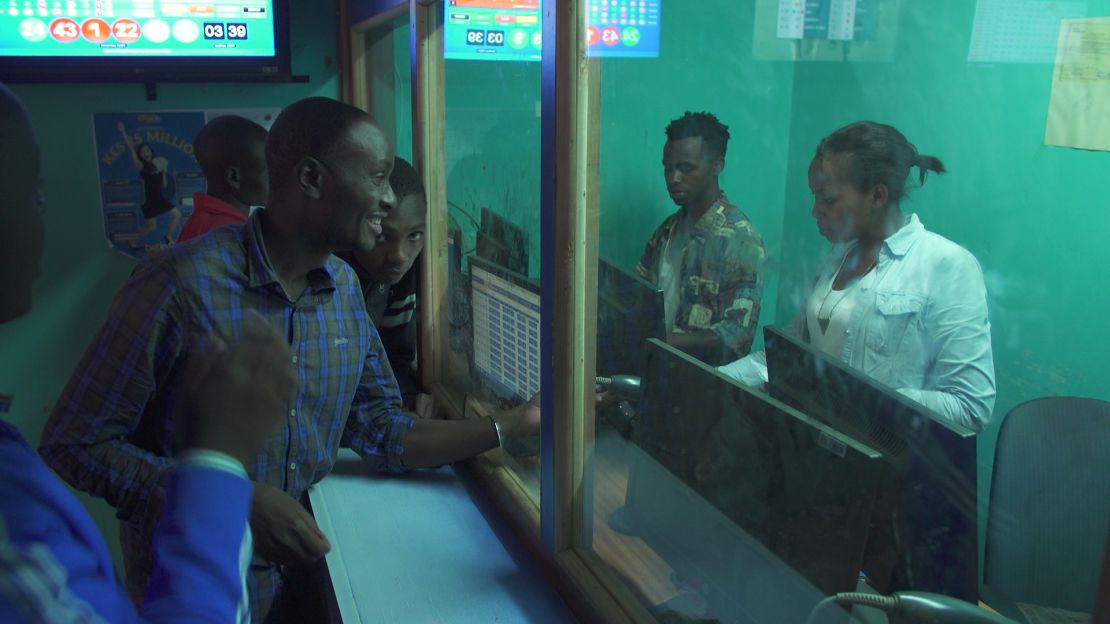
Underage gambling
We discuss the dangers of underage online gambling, and Ronald Karauri insists, “It’s not affecting children.”
He adds: “There’s no way unless the kid had access to your phone, which is the same as you know you have a loaded gun and you leave it on the desk and you don’t secure your device.”
READ: Maradona and ‘the only miracle of the 20th century’
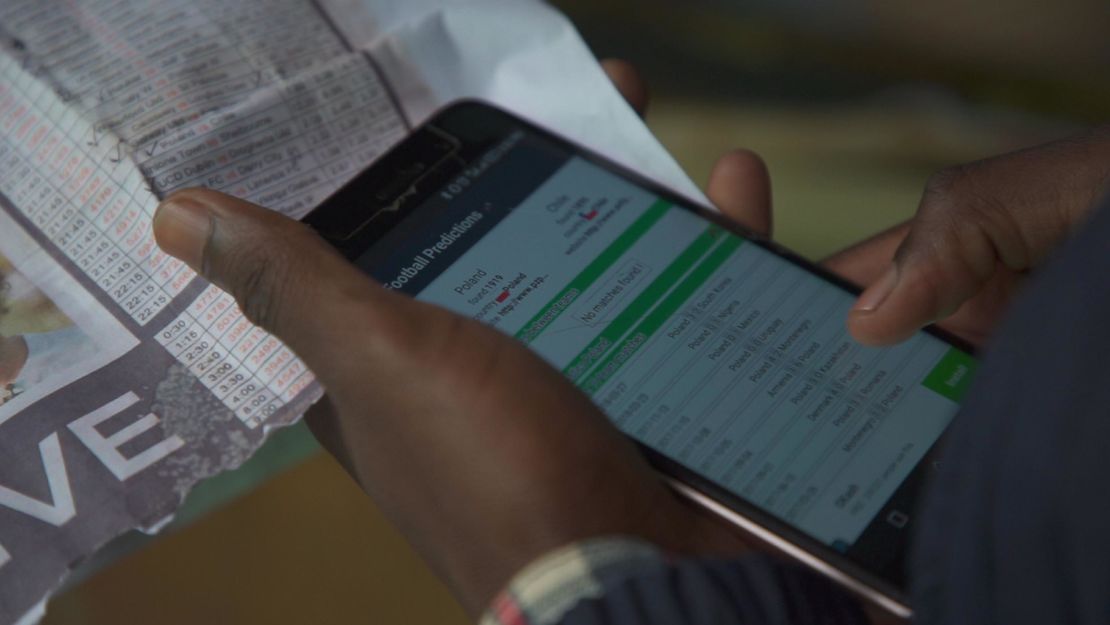
In downtown Nairobi where life is less glitzy, children typically play in the streets unsupervised while their hard pressed parents go out to work.
It is here that we meet 12 and 14 year old Cousins Brian and Teddy, with their parents’ permission. Teddy tells us he uses his friend’s phone to gamble online, and Brian says he gets older youth to place bets in the shop on his behalf.
“Last week there,” Brian says pointing to a betting shop. “We were two people, I’m 12 and he’s 18, he have an ID card so I just told him how to do those things and I waited outside there. And he get inside and bet. After that he come back and he won 400 Shillings.”
He explains that after splitting the prize money, he bought a $2 pair of socks with his share of the winnings. When Brian is 18 he says he will start betting on his own.
“Betting helps people, sometimes you may not get money but if you bet you can win and get money. The thing to do, you should not give up.”
The biggest World Cup upsets in history
READ: Goals, tears and earthquake alerts on the road to Russia
Underage gambling has become a growing concern in Kenya, enabled with mobile money and easy access to the internet.
Government spokesman Mwenda Njoka tells CNN that some youth have paid the ultimate price.
“We’ve had cases of children committing suicide after losing bets,” he said.
“What is lacking is we need to have some counseling not just for the physical but for the mindset, for people who are addicted to gambling.”
Visit CNN.com/sport for more news and features
Now, because of the internet, Njoka said, it’s become difficult to control and manage to prevent underage people from betting.

























